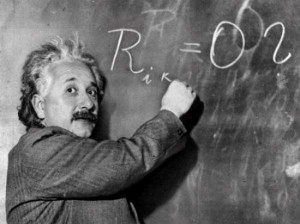 Ever wondered what would have happened if you’d taken a different turn at the career crossroads or switched your specialism to pursue a dream? Good career advice can allow us to plot a course for success, but there are just as many success stories of those who ignored conventional wisdom, dropped out of education, or left a good job to strike out on their own. If you’re feeling like making a change, use these unusual and unlikely career stories as inspiration…
Ever wondered what would have happened if you’d taken a different turn at the career crossroads or switched your specialism to pursue a dream? Good career advice can allow us to plot a course for success, but there are just as many success stories of those who ignored conventional wisdom, dropped out of education, or left a good job to strike out on their own. If you’re feeling like making a change, use these unusual and unlikely career stories as inspiration…
Education or life experience?
 There’s no denying that education can have a huge and lasting impact on your employment potential, but according to the examples of some pretty big players in the tech industry, it’s not always as essential as we think. Both Bill Gates, founder of Microsoft and Mark Zuckerberg, creator of social network Facebook, left Harvard University before they graduated. Gates dropped out in 1975 to set up the now-billion dollar software business with Paul Allen, while Zuckerberg exchanged his dormroom for the Silicon Valley boardroom in 2004.
There’s no denying that education can have a huge and lasting impact on your employment potential, but according to the examples of some pretty big players in the tech industry, it’s not always as essential as we think. Both Bill Gates, founder of Microsoft and Mark Zuckerberg, creator of social network Facebook, left Harvard University before they graduated. Gates dropped out in 1975 to set up the now-billion dollar software business with Paul Allen, while Zuckerberg exchanged his dormroom for the Silicon Valley boardroom in 2004.
Less well-known names like Matt Mullenweg, WordPress founder, didn’t even take computer classes at the University of Houston, but had several offers from companies including CNET, who eventually persuaded him to leave his studies in 2004. He left this job to found his own company, Automattic, which now controls sites that receive half a billion visitors a year.
Career changers
 Taking a different route in your career can feel like a nerve-wracking plunge, but consider the example of these famous figures, who experienced success going against the grain.
Taking a different route in your career can feel like a nerve-wracking plunge, but consider the example of these famous figures, who experienced success going against the grain.
Albert Einstein formed some of the most game-changing theories in 20th century science, but although he won the Nobel Prize for Physics in 1921 with his Special Theory of Relativity, he was no conventional academic. In fact, though he did complete his studies in engineering at the Swiss Federal Institute of Technology as his family wished, he was not offered an assistant professorship like the rest of his class. Instead, he moved away from academia, working as a patent clerk while writing his scientific research papers on the side.
More recently, Robert Reich had what some would call a dream job in the 1990s, working as Secretary of Labour in the Clinton Administration at The White House. Resigning in 1996 to spend more time with his family, Reich received a lot of criticism for the move, but states he’s happy being off the fast track. Since he left he has released eight books, becoming a professor at Brandeis University and maintains that the disproportionate work-life balance of such high-flying jobs is still a major problem for the modern world.
The reality of going against the grain
Of course, the message should not be that a sudden leap between careers is always a good idea, or that you should quit a college course to follow a whim. But if you do have a well-thought-out career alternative, having the courage to stick with your convictions, even when everyone else might be expressing doubt, is something that everyone from self-made entrepreneur Sara Blakely to Steve Jobs can inspire us to do.
Images by Jason McELweenie, o5com and Wikimedia commons, used under Creative Commons Licence.

